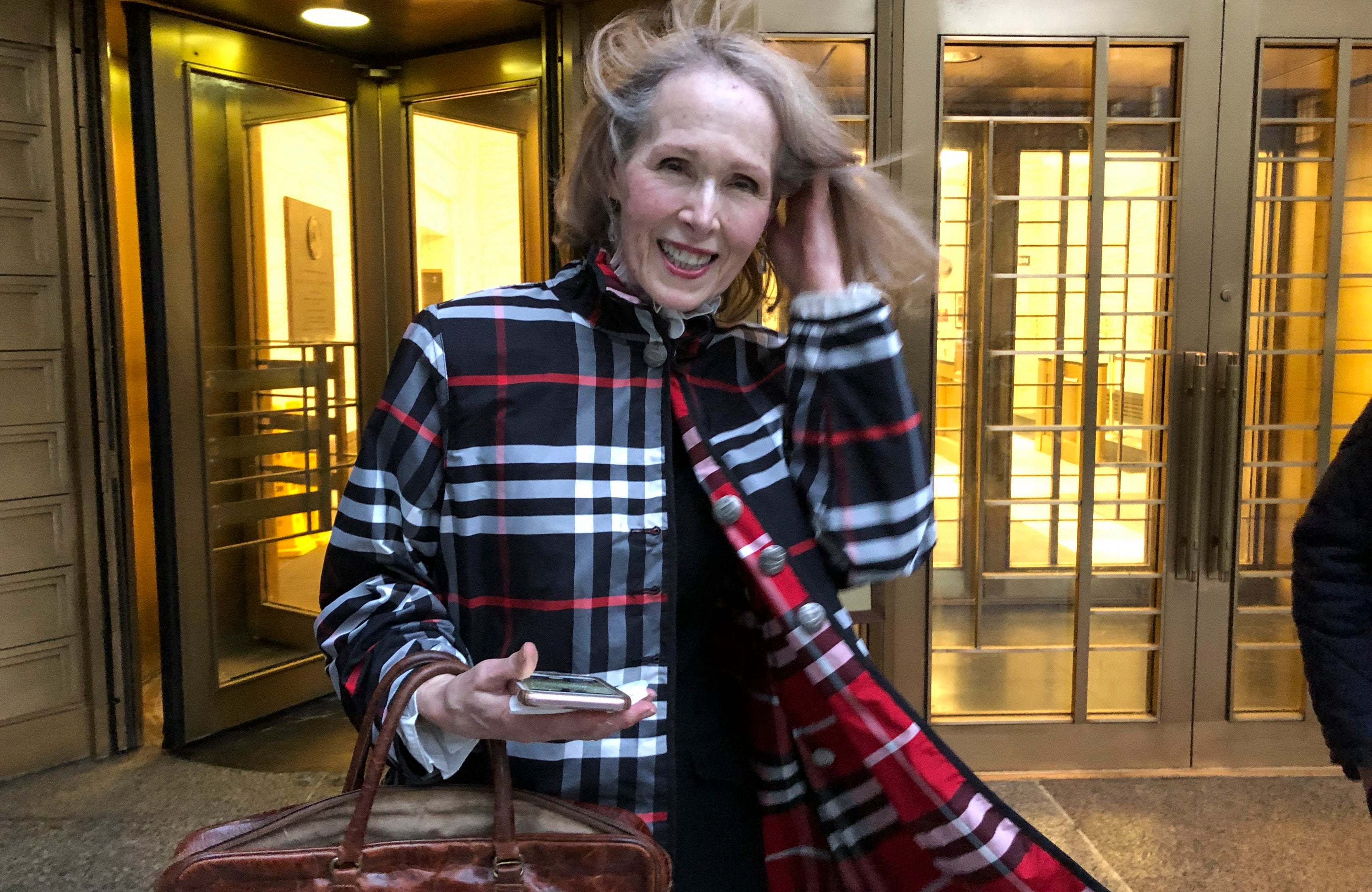Donald Trump's DNA, not deposition sought in defamation suit
A lawyer says she will not seek to depose ex-President Donald Trump in a defamation lawsuit brought by a woman who accused him of rape because she wants to speed the case toward trial

Your support helps us to tell the story
From reproductive rights to climate change to Big Tech, The Independent is on the ground when the story is developing. Whether it's investigating the financials of Elon Musk's pro-Trump PAC or producing our latest documentary, 'The A Word', which shines a light on the American women fighting for reproductive rights, we know how important it is to parse out the facts from the messaging.
At such a critical moment in US history, we need reporters on the ground. Your donation allows us to keep sending journalists to speak to both sides of the story.
The Independent is trusted by Americans across the entire political spectrum. And unlike many other quality news outlets, we choose not to lock Americans out of our reporting and analysis with paywalls. We believe quality journalism should be available to everyone, paid for by those who can afford it.
Your support makes all the difference.A lawyer for a woman who accused former President Donald Trump of raping her in the mid-1990s and then filed a defamation lawsuit against him said Tuesday she will not seek to depose Trump prior to trial because it would cause unnecessary delay, but she added that a DNA sample was still being sought.
Attorney Roberta Kaplan first made the revelation in Manhattan federal court during a pretrial hearing before explaining the decision to reporters outside court as her client, E. Jean Carroll, stood by her side.
A deposition, Kaplan said, would “inevitably result in an inordinate amount of delay.”
“We want the case to go forward,” she said.
Attorney Alina Habba, who represented Trump at the hearing, said outside court that she had not heard before that Carroll's lawyers did not want a deposition, a proceeding in which lawyers in civil cases question likely witnesses under oath prior to trial.
“It's surprising,” Habba said.
As for a DNA sample, Habba said: “None has been demanded.”
Kaplan, though, said the DNA sample had been requested after the case was first filed in state court and the demand still exists after it was moved to federal court.
The Associated Press generally does not identify people alleging sexual assault, but Carroll has consented to being named in the media.
She told reporters outside court that she was looking forward to the trial on behalf of all women “who have been grabbed and groped, assaulted and raped by men in power and are silenced.”
“And we are looking to bring justice, at least in this one case, against a powerful man,” she said.
Carroll said she would “never settle, never.”
“This is about principle. It's about a powerful man assaulting and raping a woman and then getting away with it. That's not right,” she said.
Carroll in a June 2019 book said Trump raped her in the mid-1990s in an upscale Manhattan department store.
The book excerpt prompted Trump to deny the allegations and question Carroll’s credibility and motivations in a statement from his White House press office, comments in an Oval Office interview and statements to the media as he boarded a helicopter for Camp David.
The 2nd U.S. Circuit Court of Appeals is expected to rule eventually on Trump's request to be replaced as the defendant in the lawsuit by the United States.
The U.S. Justice Department has asserted that Trump cannot be held personally liable for “crude and disrespectful” remarks he made about Carroll because he was president at the time.
Judge Lewis A. Kaplan, who presided over Tuesday's hearing, ruled last October that Trump cannot use a law protecting federal employees from being sued individually for things they do within the scope of their employment.
He also has rejected a request by Trump's attorneys that the progression of the lawsuit, including depositions, be delayed until the 2nd Circuit rules on whether Trump can be replaced as the defendant.